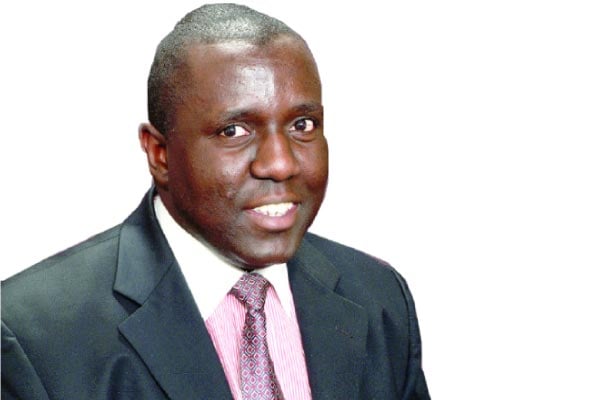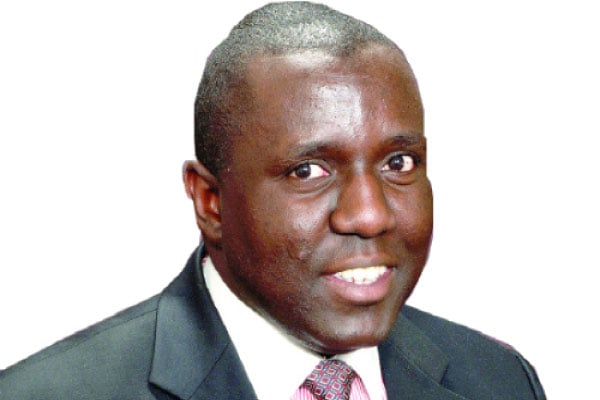Prime
Global finances in distress, winter of discontent builds up as Uganda falters in Ebola response

Author: Mr Karoli Ssemogerere is an Attorney-at-Law and an Advocate.
The IMF concluded its annual meetings last month with a warning that the global economy is going to slow down in 2023. Global economic growth forecasts are likely to drop from 4.5 percent in 2022 to 2.3 percent. It will in most cases feel like a “recession”.
Early indications and warnings are coming from many Treasuries that have exhausted borrowing headroom. In Africa, Ghana is on their doorsteps seeking an urgent bailout even though Ghana has been flush with oil revenue.
After the August General Election, Kenya quickly cut the maize and petroleum subsidies on account of empty treasury coffers. In Uganda, the Treasury and Central Bank use terms like “inflation management”, system upgrades to payment platforms and cash management to telegraph messages to accounting officers to expect less disbursements.
It is interesting that President Museveni on a visit to Mayuge District to celebrate a Church of Uganda holiday wondered how the Basoga were surviving in an environment of obvious economic distress. Ahead of the 2021 elections, a number of documentaries focused on the plight of sugarcane outgrowers who had a bumper crop on account of the 2020 rains going hungry and destitute as sugar factories did not have the crushing capacity to process their cane.
Outgrowers had to pay middlemen to get in front of the long queues of trucks overloaded with sugarcane. The big players, SCOUL and KSW now have less sugar on account of much lower rainfall totals.
In Europe, countries have braced themselves for a long cold winter even though weather is milder than earlier projected. The UK government is promising price support for domestic energy where average winter bills are projected to more than double to GBP 2500 per household. The European seas are flush with floating vessels carrying liquefied natural gas, LNG as panic buying has left storage terminals full and prices later in the winter are likely to drop.
Developments like the end of the Democratic Governance Facility in Uganda that has dried up “civil society” cash must be understood in the context that most European countries in the shadow of Russian aggression in Ukraine are preparing themselves for a long cold winter.
Old Housing stock that is energy inefficient is being overhauled and replaced by modern energy efficient housing but this can’t be fast enough. Attention will once again be on the United States’ midterm election due next Tuesday, the Brazilian election run off; the Nigerian general election at the end of the year to study whether a new pattern in politics emerges to capture the sour public mood. South Africa, whose General Election is not due until 2024 may mark the return of Jacob Zuma, as the only hope to inoculate ANC from its declining electoral fortunes.
In Uganda, an unofficial primary is building up as the incumbent prepares to run for office again in 2026 while under pressure to anoint a preferred successor. Politics like organized religion thrive in times of distress.
During the Covid pandemic, both were on the back burner as their main vehicles, political rallies, public gatherings and Sunday congregations were cut back or simply proscribed. That’s why Uganda finds itself in unfavourable light as the government seeks to find its way around the recent Ebola outbreaks initially contained but now spreading in the economic epicenter.
A mini-winter of discontent building around the Ministry of Health officials being accused of posturing to milk the economy dry in Ebola remediation measures. One wonders who advised the President to lock down just two districts, and keep the entire Ebola highway that runs from the Bundibugyo, through the districts of Ntoroko, Kabarole, Kyenjojo and Kyegegwa. Truck transit cargoes from the DRC dominate this route.
The transmission of Ebola at the incidence stage is animal to human associated with eating a delicacy in the DRC, the monkey. At the time the lockdown was being announced, the President was lifting “roadblocks” that would be used to conduct spot checks along the entire route of entry into the Ugandan hinterland. Arresting turn boys and drivers dropping off passengers is not a solution.
Mr Ssemogerere is an Attorney-At-Law and an Advocate.




